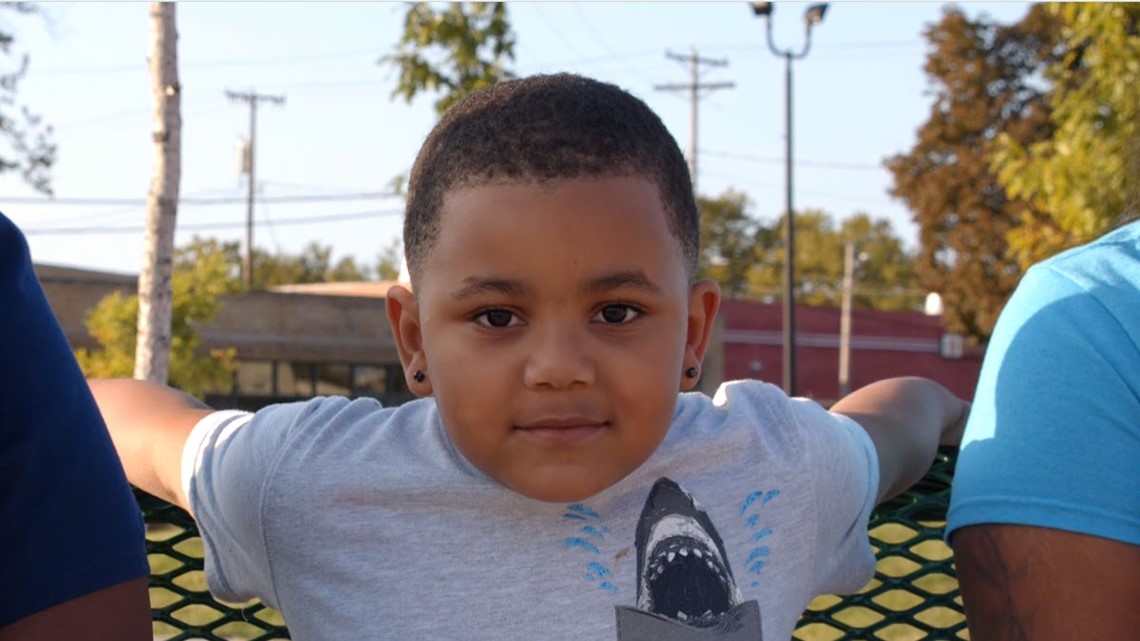11 Investigates: Who killed Kevin Carr Jr.?
A father and fiancé faced hard choices to keep his family afloat. A final decision likely ended in his murder. Who killed him? The answers may be locked in an iPhone
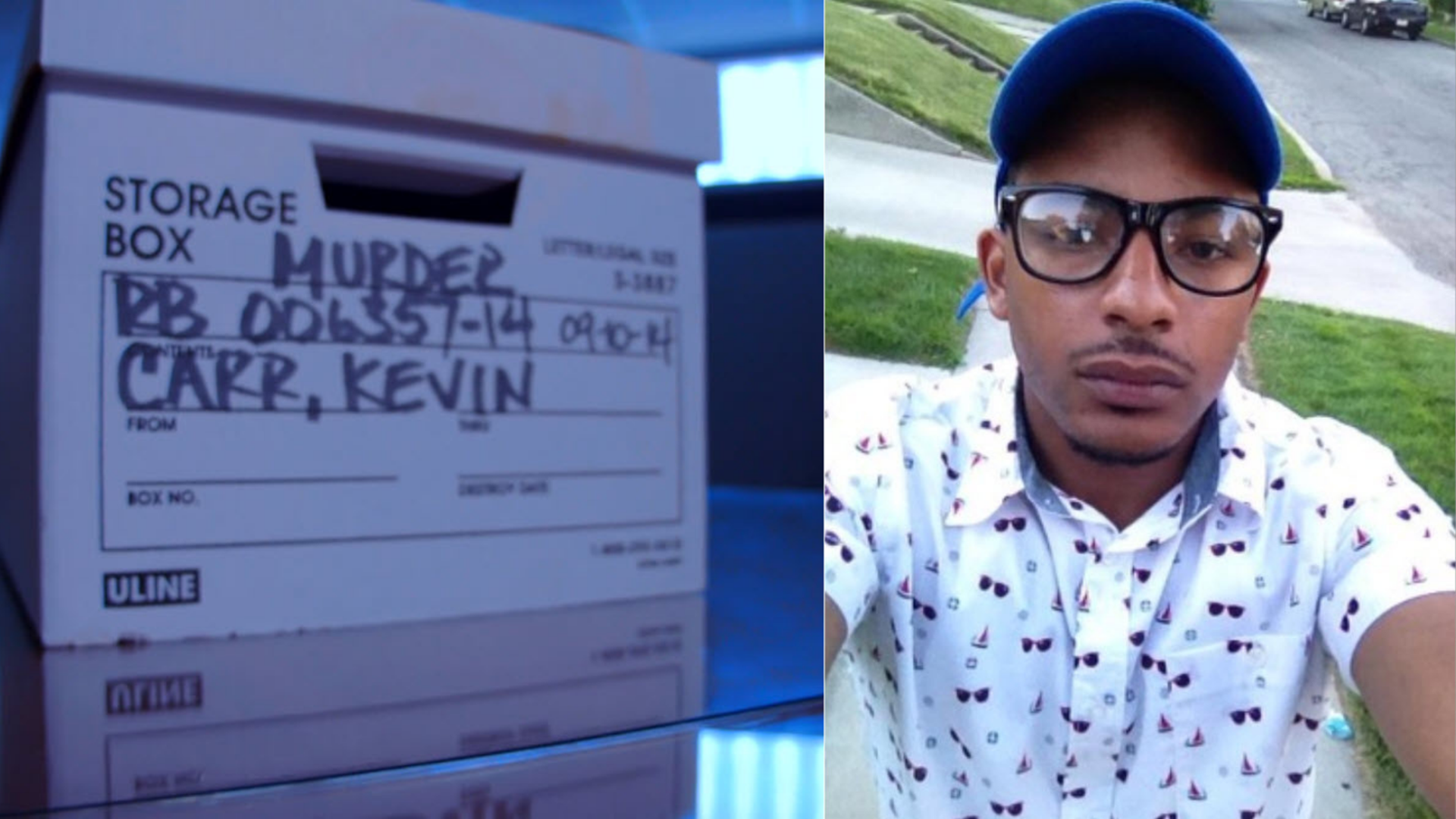
It was raining on the night of Sept. 10, 2014, as Kevin Carr Jr. stepped out of his mother's car on Blum Street in central Toledo.
He was wearing dark sweat pants, a Coogi coat, and sneakers. A scar on his cheek was a testament to the hard, sometimes criminal, life that he had led in his first 24 years. A tattoo of praying hands on his chest was his commitment to turn from it.
Carr was headed somewhere that he didn't want to go, to meet people he didn't want to meet.
Moments earlier, he promised his fiancee, Lee, that he would be home in time to be with their son, Sir Pharaoh, so that she could go to work.
Lee would have been his ride if not for the rain. It was too cold and too wet for a 9-month-old baby.
After his mother pulled into the side street, Carr jumped from the car and thanked her for the ride. She saw him turn left onto Hawley.
And then he disappeared.

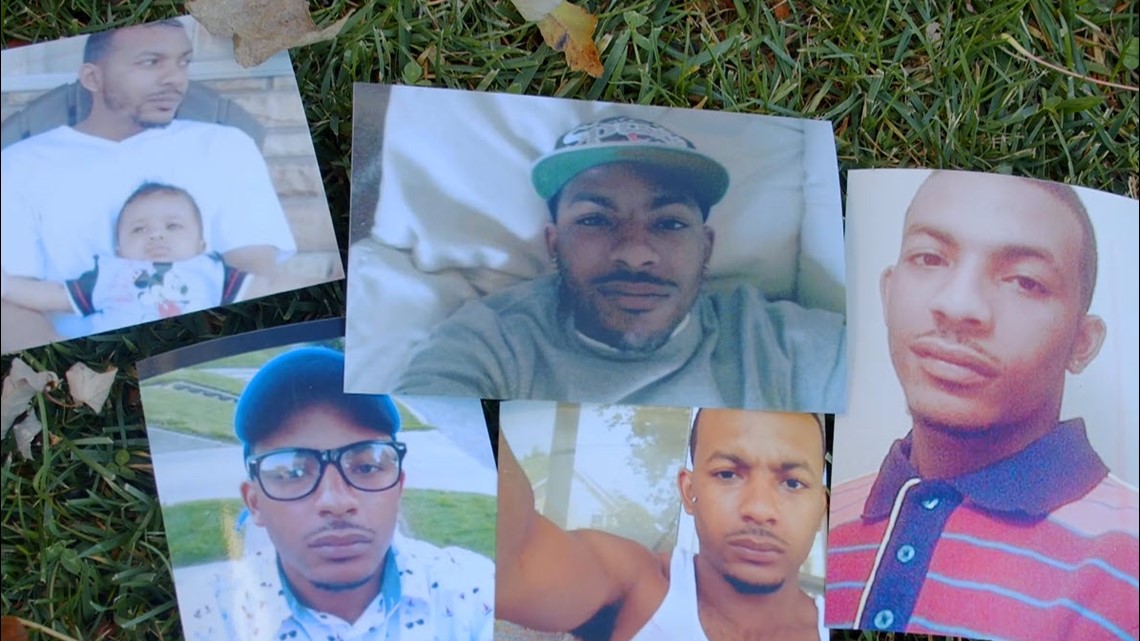
'I already knew it was over.' 'I already knew it was over.'
Days later, Carr's mother, Beatrice, filed a missing person's report.
Groups of family and friends began to comb the neighborhood.
"He would sometimes just pop up at my house, at all hours of the night. I thought maybe he'd just show up," his aunt, Antoinette Cobble, says.
But his fiancee already knew that he would not be popping up.
"When he didn't come home that weekend, I already knew it was over," she says. "I just wanted the body to come home."
Leanda Pullom and Kevin Carr began dating in 2010. She has since changed her last name to Carr and says everyone calls her "Lee."
"He was a good dad. He was silly. He had a big heart and always gave to people," Lee says. "There was this homeless guy he knew. He'd never give him money, but he'd always ask if he could go get him something."
Sometimes, he was too giving, she says.
"Him being a giving person is what ended up being his downfall."

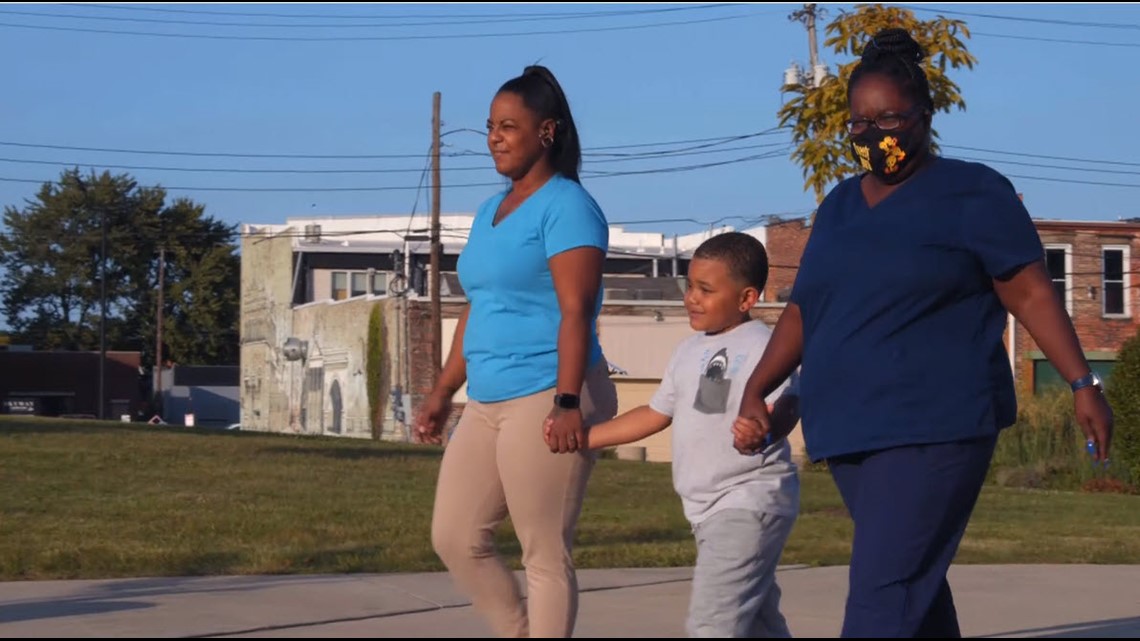
The Dumping Fields The Dumping Fields
On Nov. 14, 2014, Dean Brick was driving his combine back to his Angola Road home after working in his cornfields in the late fall darkness. Just before the combine could roll over it, an opossum jumped from a hole and scurried away.
In the morning, Brick returned to the hole.
"He goes to check it out and notices what he believes is skeletal remains," says Capt. Matt Luettke of the Lucas County Sheriff's Department.
Those remains are Kevin Carr Jr. The coroner eventually rules that he died of strangulation.
It is not the first body that has been found in the area. Secrets are easily buried off the desolate roads of Western Lucas County. No more than a mile down Angola, another body was found this past March. There is not believed to be a connection, but no one can say that for sure.

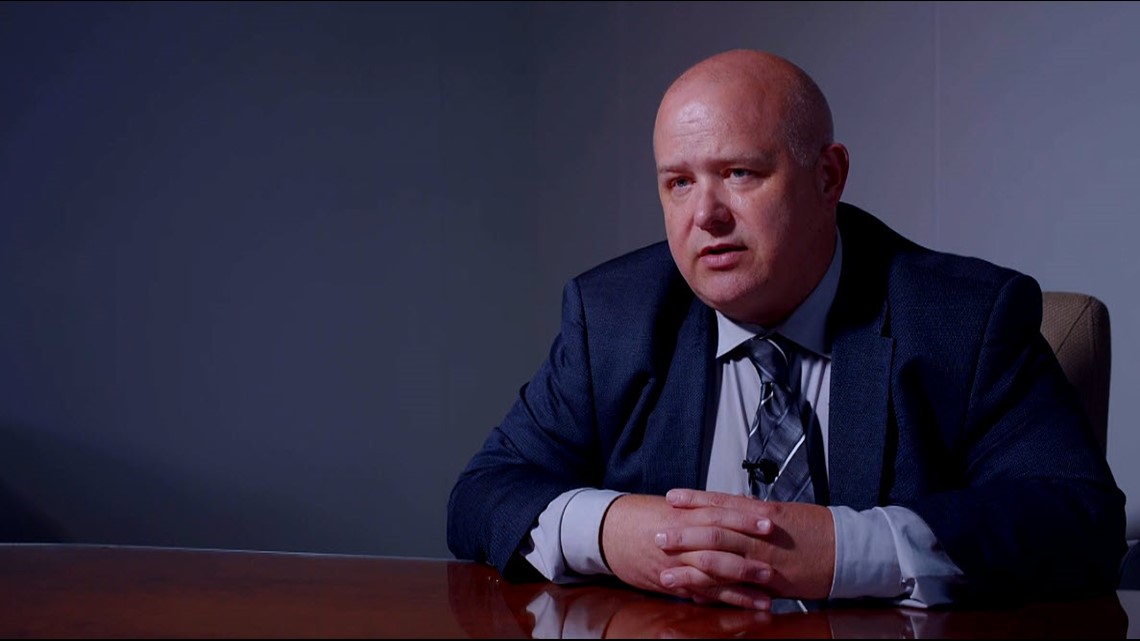
"There is not a lot of foot traffic in these areas," Luettke says. "We've found cars concealed. It's not unusual for us to find things in those areas."
But the question that has continued to stump Luettke and his team of investigators is "How did Carr get buried in a field that was almost 30 minutes away from where he was last seen in central Toledo?"
"I would never say that I know who killed Kevin Carr. We have our suspicions as far as what type of crime that it was. But I wouldn't go so far as to say that we know who killed Kevin Carr," Luettke says. "I know that somebody knows who killed Kevin Carr. We know that more than likely there was more than one person involved or there at the time Kevin Carr died."
But Leanda has a different answer.
"No, I know who killed him."

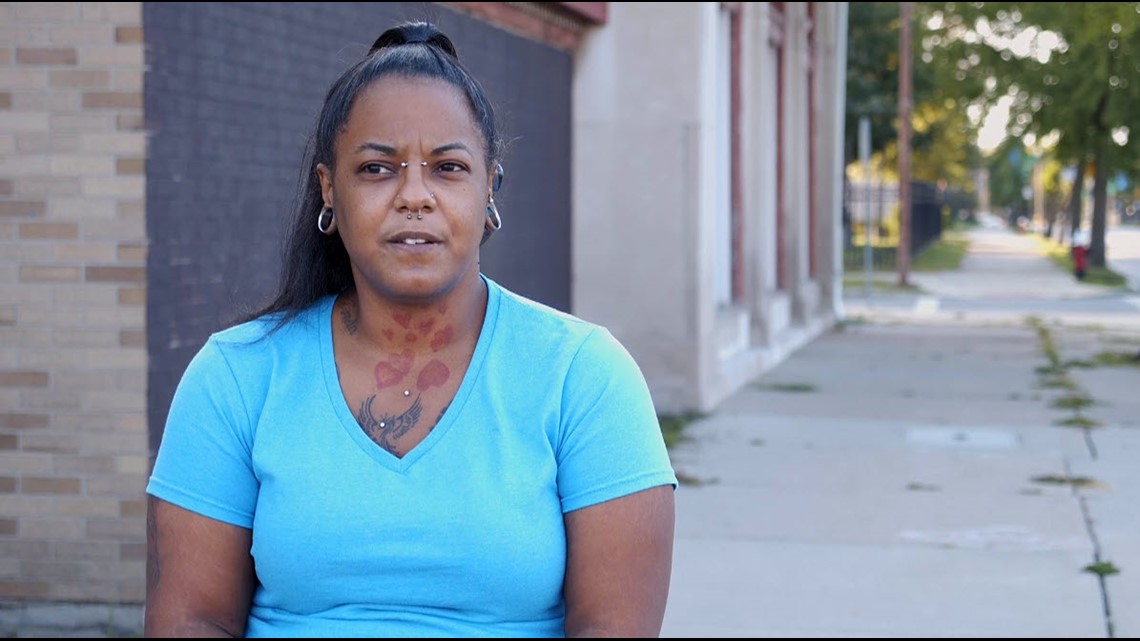
A Return to the Criminal World A Return to the Criminal World
In July, 2014, an eviction notice was stuck to the door of Kevin and Lee's apartment. Leanda says she had struck a deal with her landlord: She could skip rent for a couple months so that she could buy the family a car and Leanda would catch up down the road.
But her landlord apparently reconsidered, forcing the family to consider the possibility of being thrown out of their home with their not-yet-6-month-old son.
The eviction notice coincided with pressure from Kevin's former criminal partners to help pull off a robbery of a Hamilton Avenue warehouse that was known to be filled with cocaine, weed, and guns.
It is clear through interviews and his own record that Carr's world involved dealings with bad, violent men ... a group involved in burglaries and selling of stolen property.


"Everybody's got a history. Everybody's got skeletons. But people can change. People can change and things can make you change. I honestly believe him having his baby made him change his life," Cobble says.
His change, according to his family, was his son, Sir Pharaoh.
In Lee's mind, she believes Kevin viewed the robbery as the promise of a big payday and a pathway out of their financial difficulties, his way to help his family before once again stepping away.
"I went to visit my brother at Ohio University. When I came home on Sunday, that's when you could see the bricks of cocaine on the table," the woman says.
Lee says Kevin didn't keep the cocaine or the guns. But he did keep weed and sold it, a move that, she says, angered the others in the group - a group that wanted to keep any evidence of the warehouse robbery away from the ears of inner-city Toledo. The fear wasn't of the police, but of retribution from the person who was renting the warehouse.
"I think the information started to get on the street about who committed it. And I think people got scared."

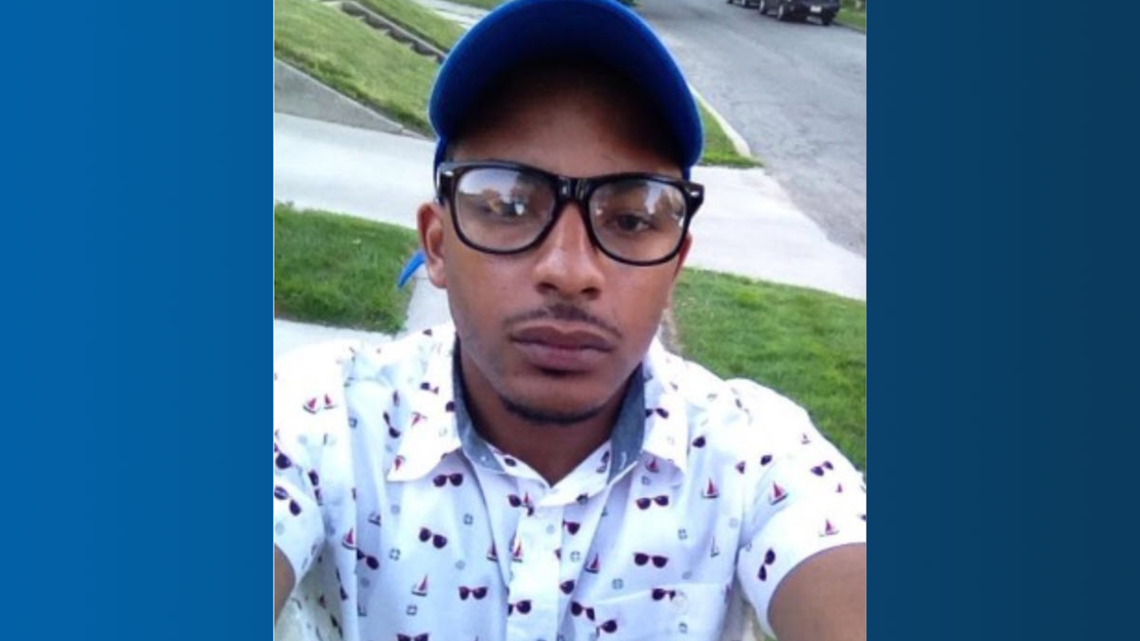
A Fateful Meeting A Fateful Meeting
On an unseasonably warm fall day, Leanda Carr holds her son's hand as she guides him around a park off of Madison Avenue.
She exhibits a steely demeanor and an absence of fear as she repeats her claim that "I know who killed him." The men behind the warehouse robbery pinned it on Kevin and shut his mouth forever, she says.
Lee recalls the events of more than six years ago with uncanny vividness.
"I remember his phone kept ringing and ringing and ringing. I said, 'he keeps calling back. They obviously want something. Why are you not answering the phone?'"
She shakes her head.
"He said, because they want me to meet up with them, but I really don't feel like going."
Now if we knew for sure who was on the other end of that conversation, we would probably not be telling you this story. We would know why Kevin jumped into his mother's car sometime later that night to go meet the caller. There would be no mystery. We would know who killed him and why.
But we know that on the night of his disappearance, Carr was using a burner phone. Investigators have not been able to find that phone, though they received a tip that it was in the Scott Park pond, which is a short distance from where Carr disappeared on Sept. 10.
"We actually made arrangements to go in there and get that phone, but we were unable to get clearance to send divers into that because of bacterial content."


The Investigation The Investigation
Drive the roads of western Lucas County and you'll pass by lots of farm fields, an occasional house. But coming from South Berkey Southern Road, the location where Carr's body was found is the first obvious dump site. There is space between houses.
What else is obvious is that it likely would not be a one-person job to carry a body to the site and bury it without being seen.
"If you are going to do something like that, it's better to have help. And that's kind of one of the theories we've been working on," Luettke says.
It fits the theory that Leanda lays out. She names four people she believes are involved because of "word on the street." 11 Investigates is not naming the men that Leanda blames because they have not been charged or publicly named as suspects.
After we expressed an interest in the case, investigators sent additional evidence to be tested by the Ohio Bureau of Criminal Investigation. The work has been aided by the fact that the Ohio Attorney General's Office now has its own cold case unit that works with local departments.
But we discovered something else during our investigation. Carr previously had a separate iPhone, a phone provided by Lee's mother for Kevin to use while he was with his son.


"He needed a phone that worked. If something happened, he needed to be able to call," Lee says.
At one point, Lee admits, she was scrolling through that phone to make sure her fiance wasn't straying. She says the phone had messages between members of the criminal group, some who, she says, told police that they did not know Kevin. But she saw their conversations.
"When it all came, I'm like I know that conversation was in the phone, because I seen it. That shows they know each other."
Captain Luettke would not confirm who exactly has been interviewed during the investigation, only that there have been several people.
The iPhone is password protected and locked. But it is possible for investigative agencies to subpoena phone companies to get actual text messages. After 11 Investigates raised the possibility of key evidence being on the phone, the sheriff's department has confirmed that they are now seeking a subpoena to review the text messages.
It could be key evidence that they need to not only connect the dots but to secure a conviction - a conviction to bring closure to a family. But also that could yield answers one day for a young son who will never know his father.
Some people will surely say that Kevin shouldn't have been hanging with the people that he was, that he was only asking for trouble. Some will ask why we should care about a man with a criminal record.
Kevin Carr was a father, fiance, son, nephew. His life was viciously snuffed out by men who are likely still walking the streets.
"That was my baby. ... He was a sweet kid. He loved his family," Cobble says. "At the end of the day, if you don't want to come forward and say you did it or somebody else did it, God got the final say, because what you reap is what you sow."

